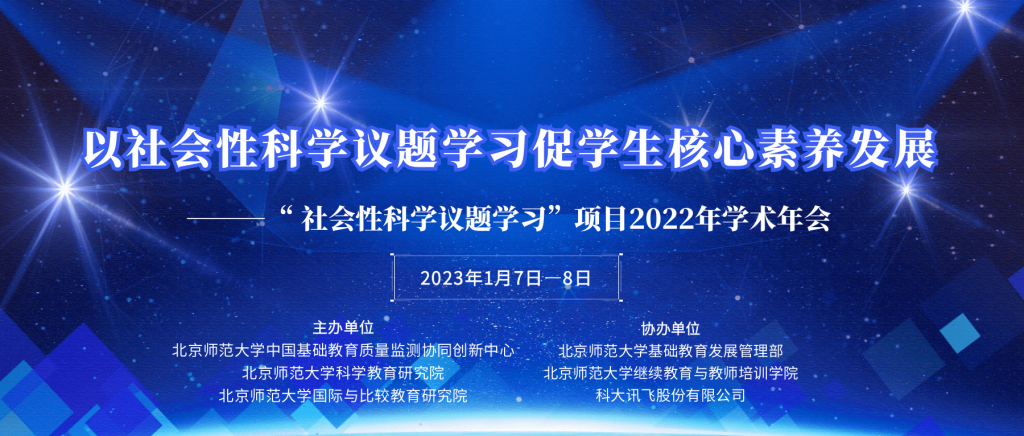
为贯彻立德树人教育目标,助力广大中小学校发展学生核心素养,北京师范大学“社会性科学议题学习”项目组于2023年1月7日至8日在线召开“以社会性科学议题学习促学生核心素养发展”2022年学术年会。会议由北京师范大学中国基础教育质量监测协同创新中心、北京师范大学科学教育研究院、北京师范大学国际与比较教育研究院主办,北京师范大学基础教育发展管理部、北京师范大学继续教育与教师培训学院、科大讯飞股份有限公司协办。会议持续四个半天,由京师继教、强师在线平台直播,每个半天均有数千人在线参会,点击量上万,受到了广泛的关注。
本次会议围绕“社会性科学议题学习与核心素养发展”“社会性科学议题学习的理论与模式”“社会性科学议题学习的教学设计与案例”和“社会性科学议题学习的课堂教学策略”这四大主题,共设中科院院士报告1场、国际专家报告7场、国内专家报告10场、6所项目合作校的案例展示以及3位特邀专家点评。会议着重研讨了证据驱动、素养导向的社会性科学议题教与学的理论与发展模式,展示交流了国内外社会性科学议题学习的设计与实践应用研究,进一步打造社会性科学议题学习的合作交流平台与专业团队。
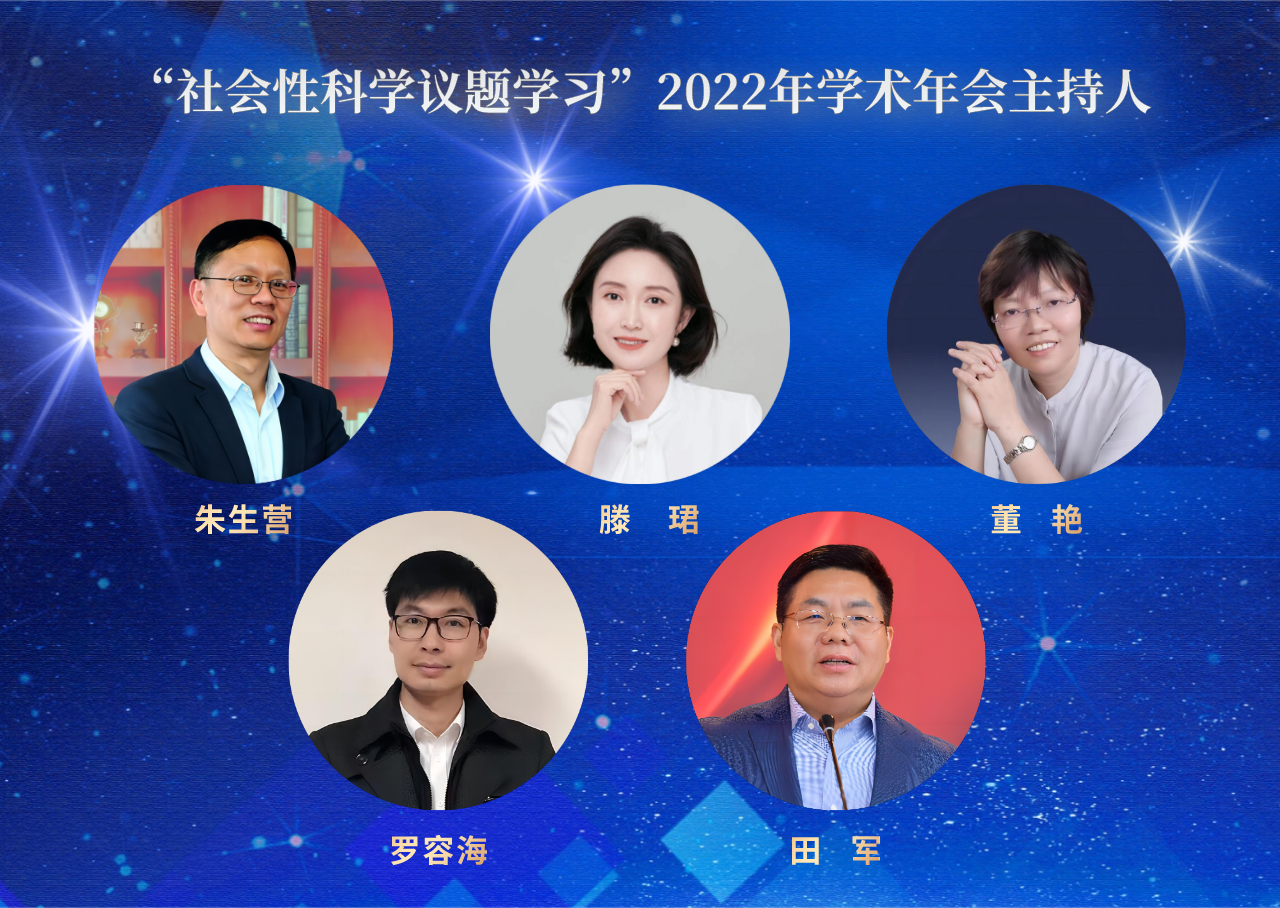
一、大会致辞
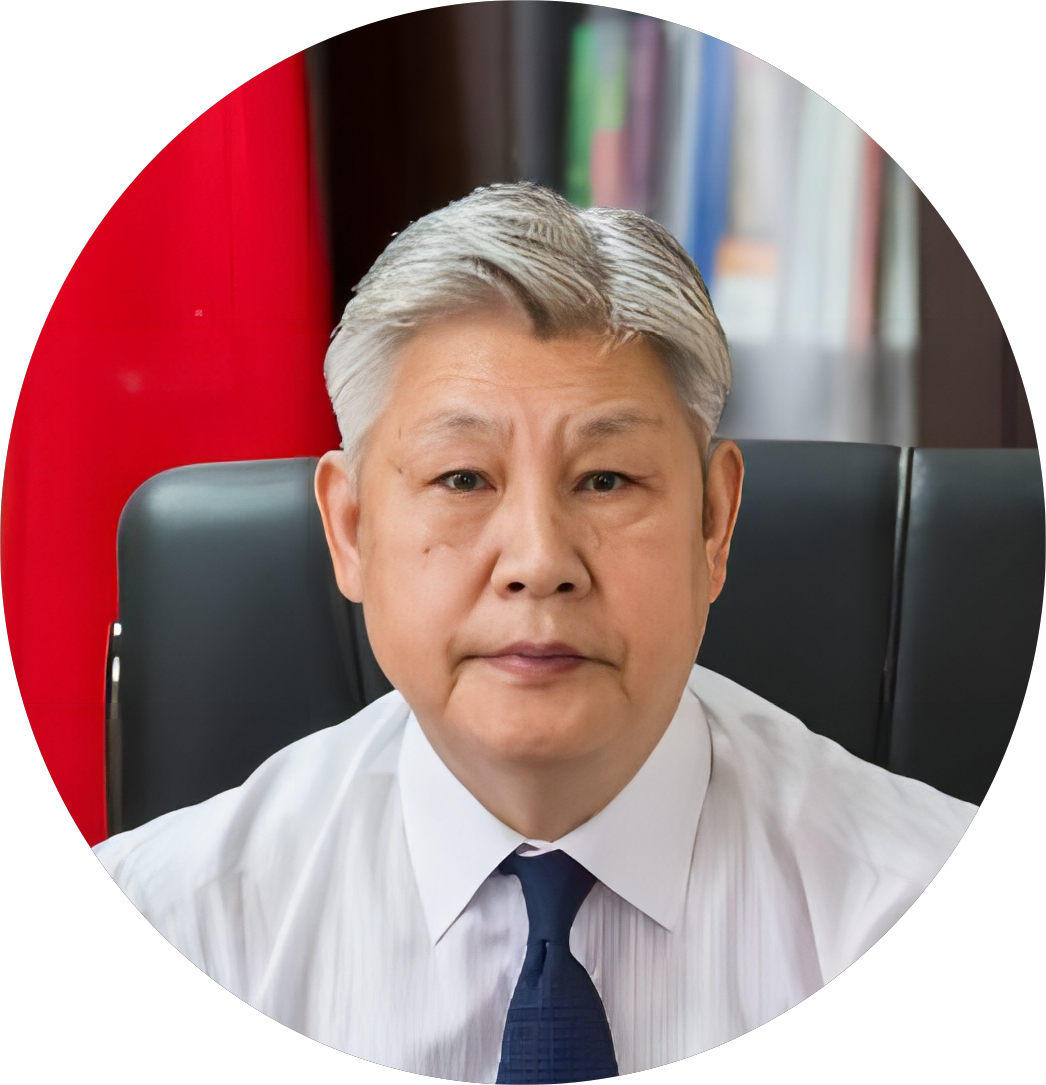
北京师范大学原校长、科学素养提升联盟主席陆善镇教授指出社会性科学议题对于培养具备科学素养的未来公民的价值,希冀所有项目成员扎实探索以议题为载体的促学生核心素养发展的有效路径。
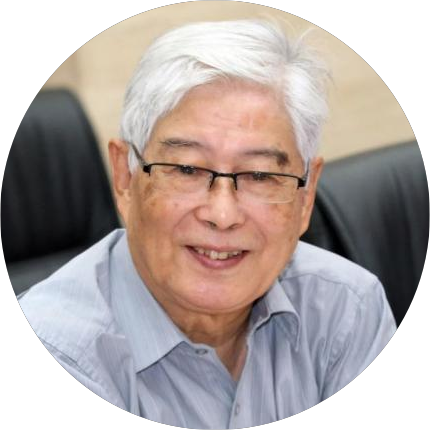
北京师范大学资深教授顾明远先生谈及社会性科学议题教育的萌芽——STS课程,肯定了项目有助于实现科学技术与人文学科融合的教育,嘱托与激励与会者以社会性科学议题为载体来培养有高尚思想情操和社会责任感的一代新人,以应对技术、经济和社会变革引发的时代挑战,为推进可持续发展承担共同责任。
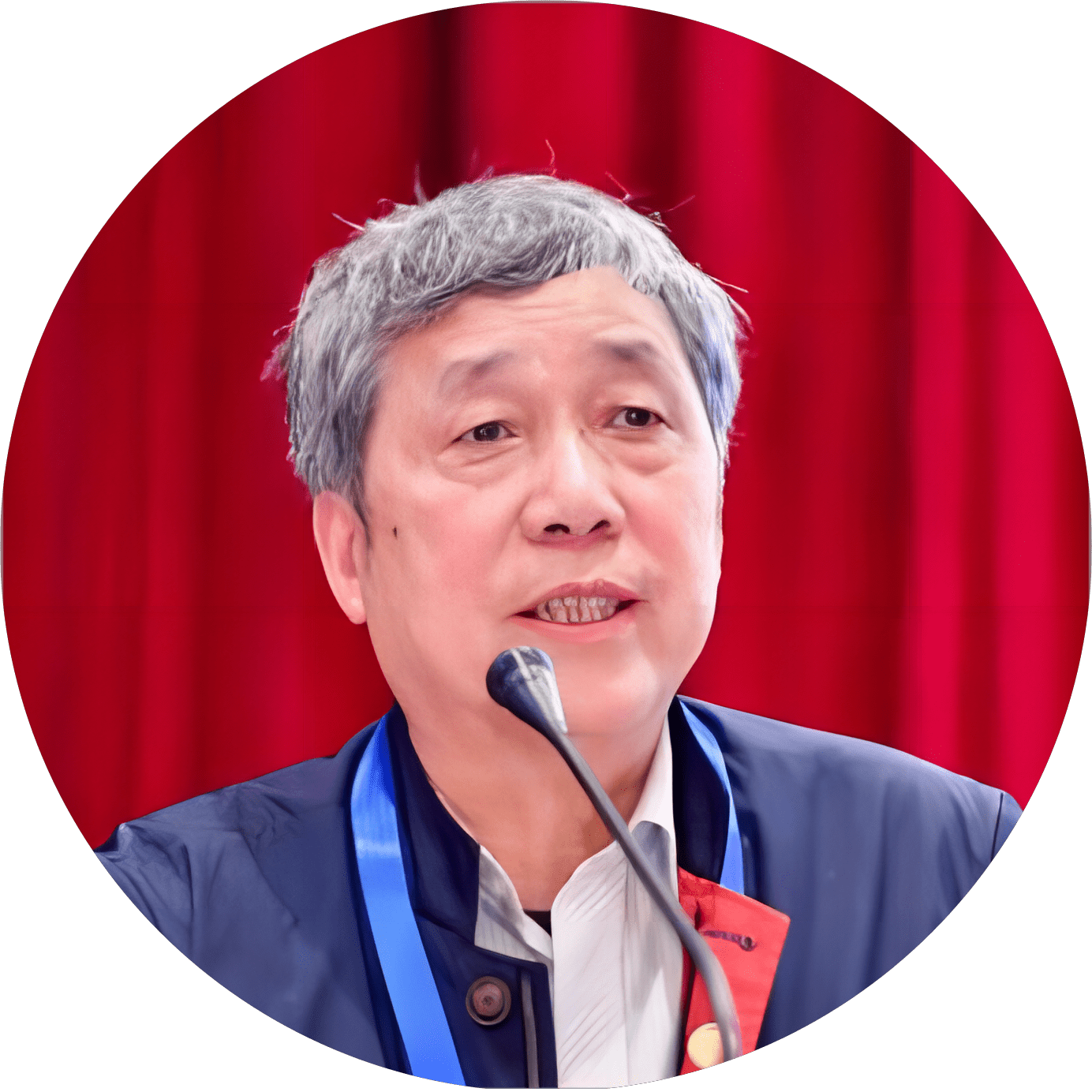
北京师范大学原副校长、校友总会副会长陈光巨教授指出项目在学校课程改革以促进中小学生全面发展中的重要性,建议项目推进关注三个方面,即提升学生高阶思维能力、提高教师育人水平与能力以及打造高品质的特色学校,推动基础教育变革与质量提升。
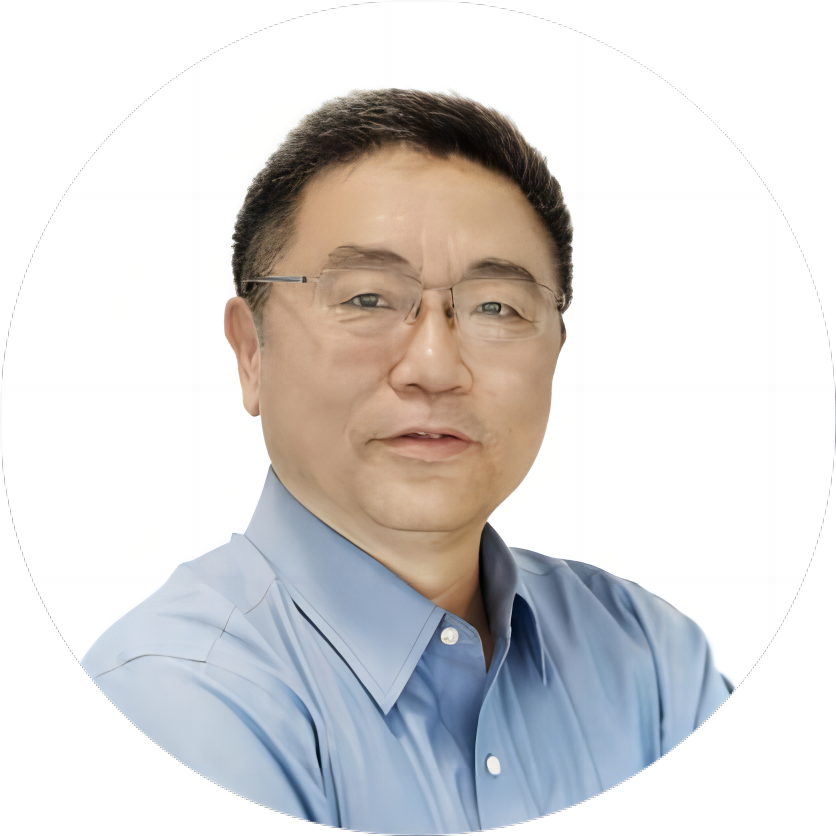
北京师范大学科学教育研究院院长、科学素养提升联盟副主席郑永和教授关联科技创新的时代背景,强调了科教兴国中科学教育的育人职责,建议项目推进中努力构建一批优质课程资源、革新课堂教学模式和开展真实问题情境下的跨学科教学,并以促教师发展为重来促学生发展。
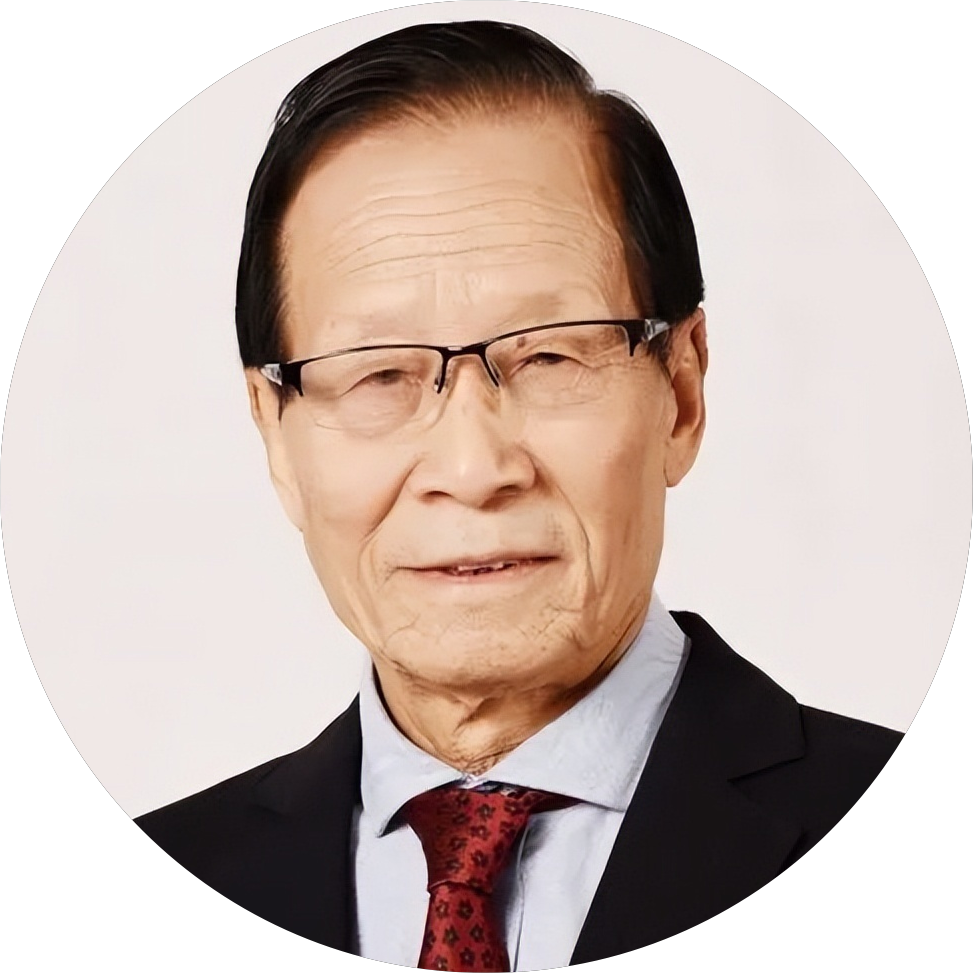
北京圣陶教育发展与创新研究院院长、项目专家咨询委员王本中先生指出社会性科学议题学习提供以文化人、以德育人的教育情境,强调在项目开展中牢牢把握国家课程标准,有机融合并着力拓展,注重学生的真实体验,使学生成为发现和解决问题的实践者与主力军,在多重利弊判断下提高道德品质与文化修养。
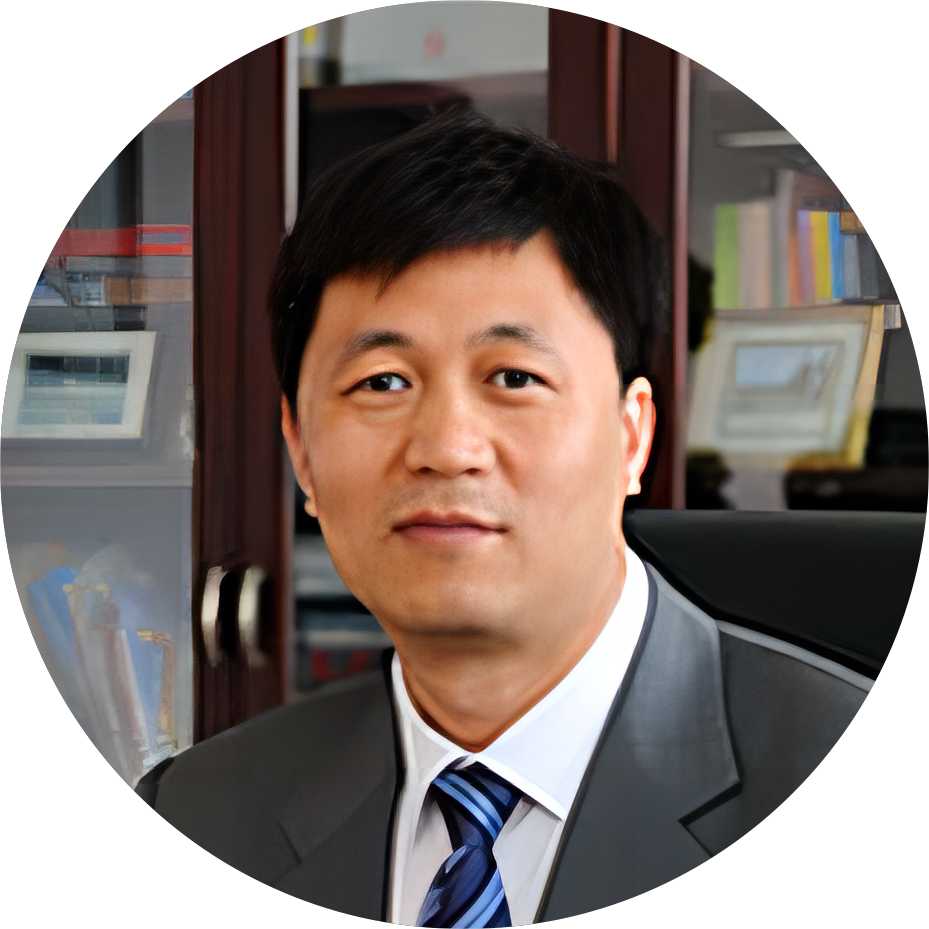
北京一零一中教育集团校长、项目合作校总校长陆云泉博士以一零一中的“校园草稿纸再生”“水润一零一”“新冠肺炎应对方案”等项目研究为例,肯定了项目促进学科互动融合、培育学生责任与担当的作用,并呼吁更多中小学校承担提升学生科学素养、培育高素质人才的社会责任,探索优秀的科学教育校本实施模式。

美国北卡罗莱纳大学教堂山分校的杰出教授、项目合作境外负责人Troy Sadler以碳循环和气候变化为例,阐明了围绕现象建立学习经验这一科学教育理念,强调以社会性科学议题创设各种学习环境的改革趋势,以支持学生在分析现实问题和做出决策中发展主观能动性,成为理性的、参与变革的公民。
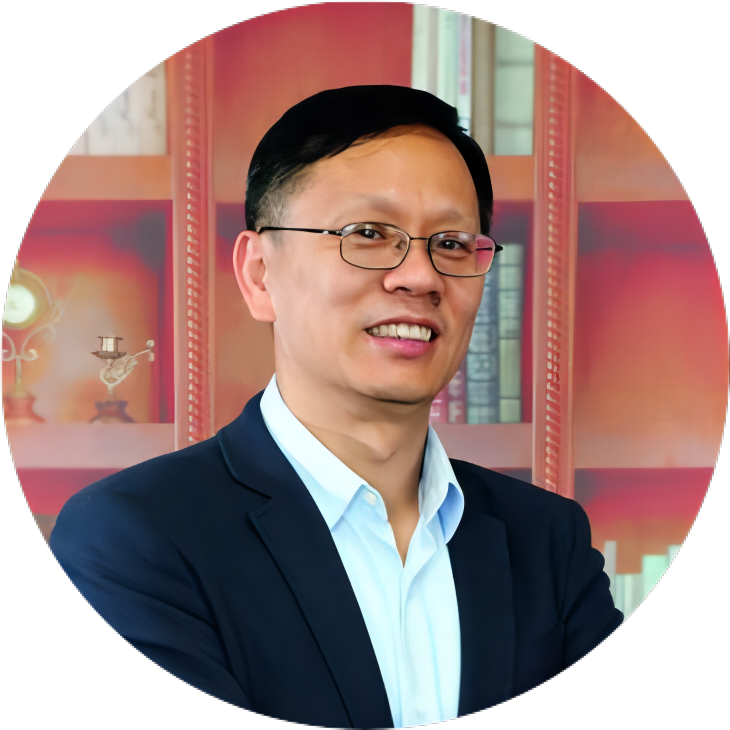
北京师范大学继续教育与教师培训学院朱生营院长表示了学院对科学教育和社会性科学议题学习项目发展的持续关注,肯定了项目对提升教师能力素质的价值,后续会与项目团队共同策划面向中小学教师的科学教育系列培训活动,推动科学教育高质量发展。
二、武向平院士大会报告
中国科学院院士、北京师范大学天文与天体物理前沿科学研究所所长武向平从我国社会主义建设的两个目标谈起,从人才培养的角度强调了提升中小学生科学素养、发展科学教育的重要性,借助人类对物质分割的极限等例子,生动形象、深入浅出地点拨大家对科学本质的理解,如科学的不确定性、科学存在边界等等。武院士指出,科学教育要培养青少年以科学家的思维来思考问题,承担知识传播、知识融合,培养并保持科学兴趣等功能。而中学生英才计划等项目则瞄准培养科学家这一目标,使一批青少年具备科学家的潜质。武院士还以龙这一传统文化象征和火箭发射为例,分别阐明了自然科学和人文科学和谐发展、成功来自于失败等科学教育中应重视的观念,启迪教育工作者的教育理念与育人目标。
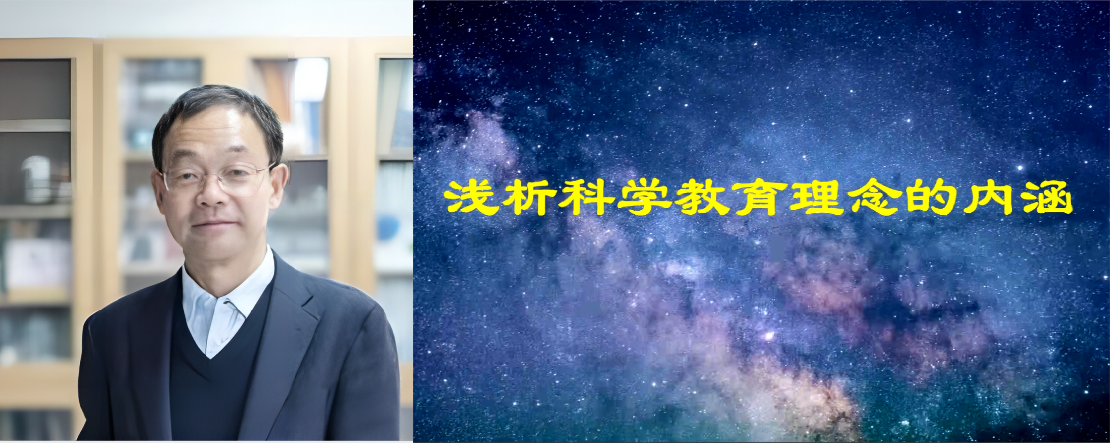
三、国际专家主旨报告
他山之石,可以攻玉。本次会议邀请了来自美国、英国、以色列、塞浦路斯等国家在社会性科学议题教育领域颇有建树的高校学者和一线教育工作者,共叙素质教育改革的方向,探讨提升社会性科学议题育人成效的路径。
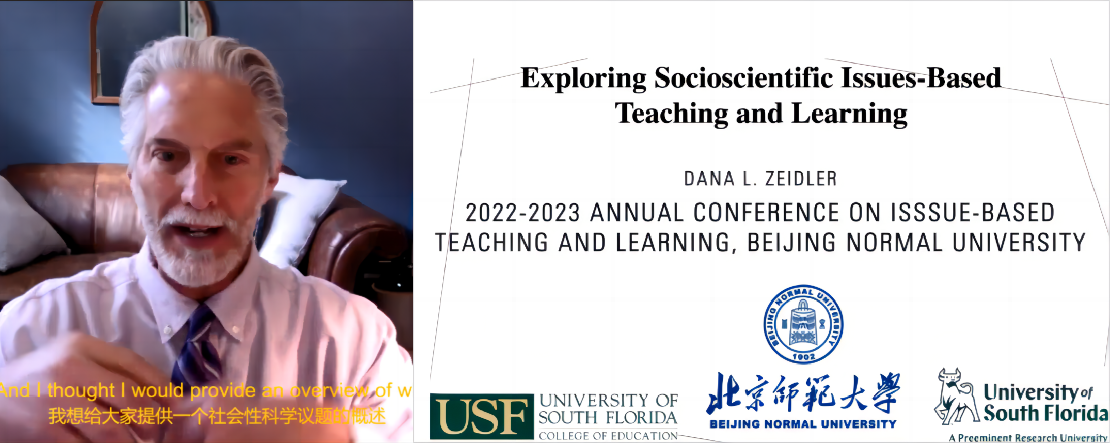
美国南佛罗里达大学杰出教授Dana Zeidler是社会性科学议题教育领域的奠基者和引领者。基于过去40多年的研究和实践,他精炼地阐明了基于议题的教与学使学生理解科学本质、培养伦理道德和推理能力、体验意外发现的快乐等目标和价值,并以药物选择、动物克隆等议题为例,解释了议题学习的教学序列、活动设计和实践方案。“在观察方面,机遇只青睐有准备的头脑。”他认为,我们所要做的,就是让学生准备好不断思考和好奇周围的世界。
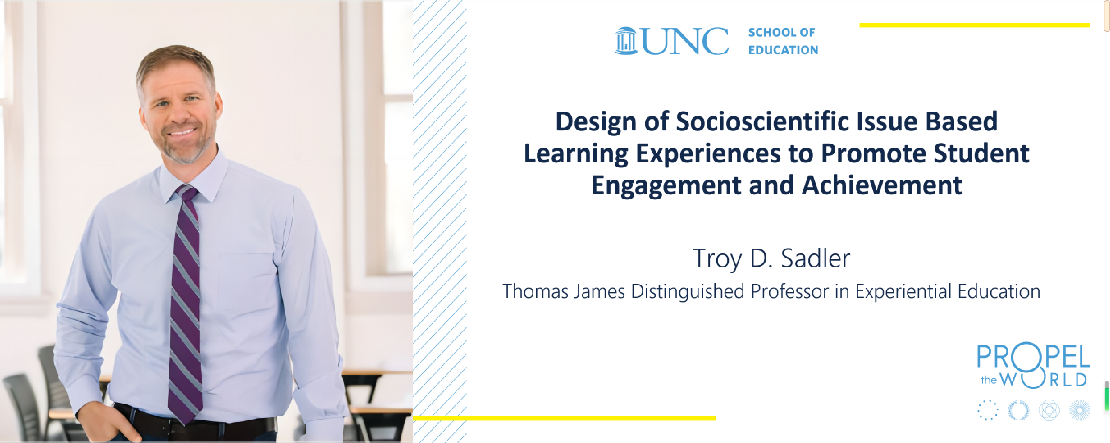
美国北卡罗莱纳大学教堂山分校杰出教授Troy Sadler分享了气候变化和栖息地丧失等教学案例,解析了高质量的社会性科学议题学习的特征,即具备现实世界中重要的真实议题,使学生围绕议题开展有意义的实践,促使学生将全球议题和当地情境相联系,增强学生的身份认同和能动性,将课堂作为话语互动的共同体空间。他提供了教师可用的教学序列模型和关键特征图等工具,基于实证研究结果,建议教师开展基于议题的教学时开放地接受跨学科理念、支持学生从多角度分析问题、重视学生想法并鼓励学生怀疑。
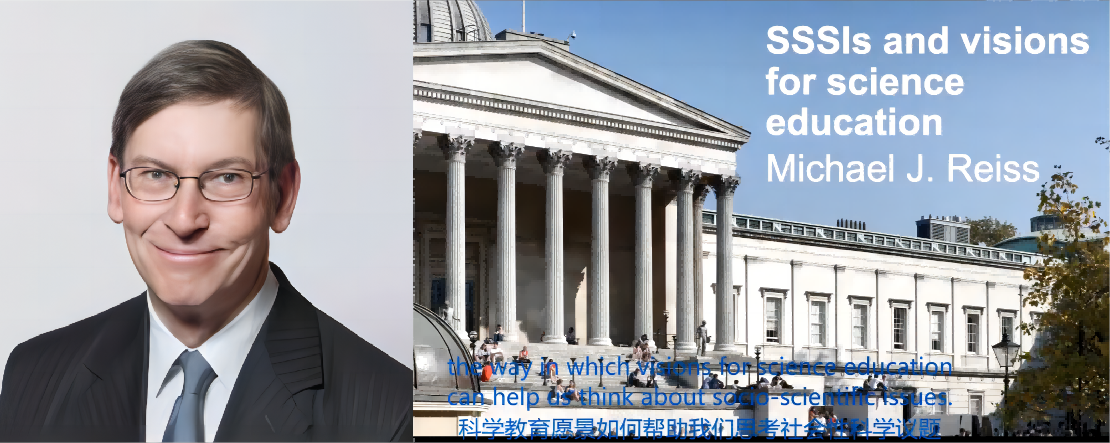
英国伦敦大学学院教育研究院Michael Reiss教授借助试管婴儿、金属开采和气候变化这三个主题,分别解释了科学教育中的三种愿景。愿景一从科学出发,强调科学知识和方法;愿景二重视公民科学,考虑每一个人对科学的使用;愿景三是一种人性化的科学教育,关注社会政治行动。三类愿景相互促进,是社会性科学议题教育全面提升学生科学素养所不可或缺的。
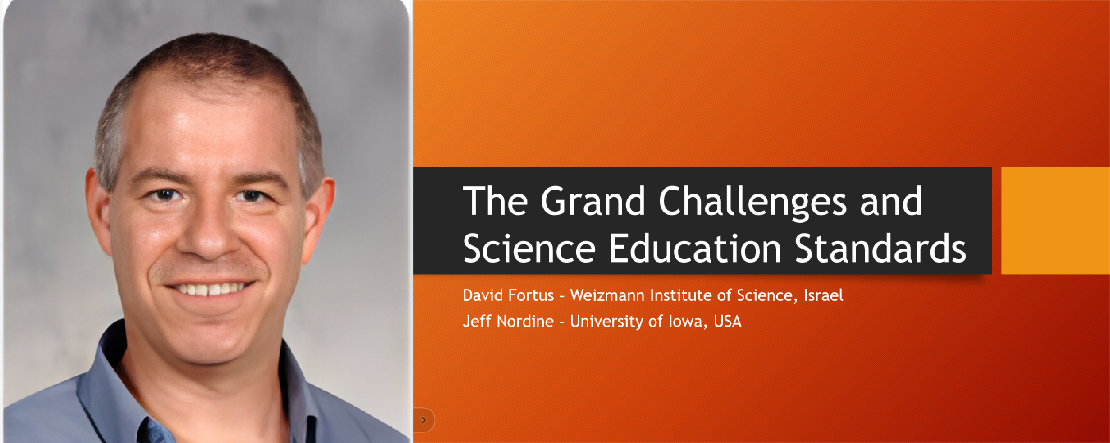
以色列魏茨曼科学研究所教授David Fortus聚焦科学教育中的现实难题,一是学生常常看不到科学与其生活的相关性,二是学生未准备好运用科学思想来参与全球性议题,建议围绕重大议题来重新构建科学教育标准,重视情感态度等非认知因素,培养未来科学家和具有科学素养的未来公民。
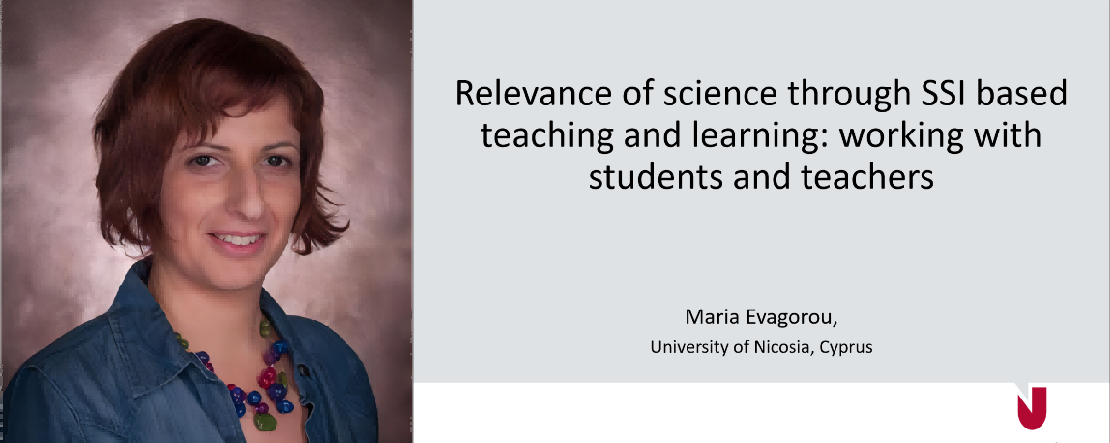
塞浦路斯尼科西亚大学副教授Maria Evagorou提出社会性科学议题学习使科学与师生相关。在蚊虫灾害这一案例中,学生经历了讨论不同解决方案、实地考察盐湖、建构和使用模型、相互评价质疑、选择解决方案的过程;在蜜蜂数量减少这一案例中,职前教师经历了品尝蜂蜜和花粉鉴定、建造蜂巢模型并重新设计与讨论、在不同场景下使用模型并论证、反思实践等过程。两个项目都充分彰显了科学对于学习者自身、对社会以及对职业和未来环境的相关性。
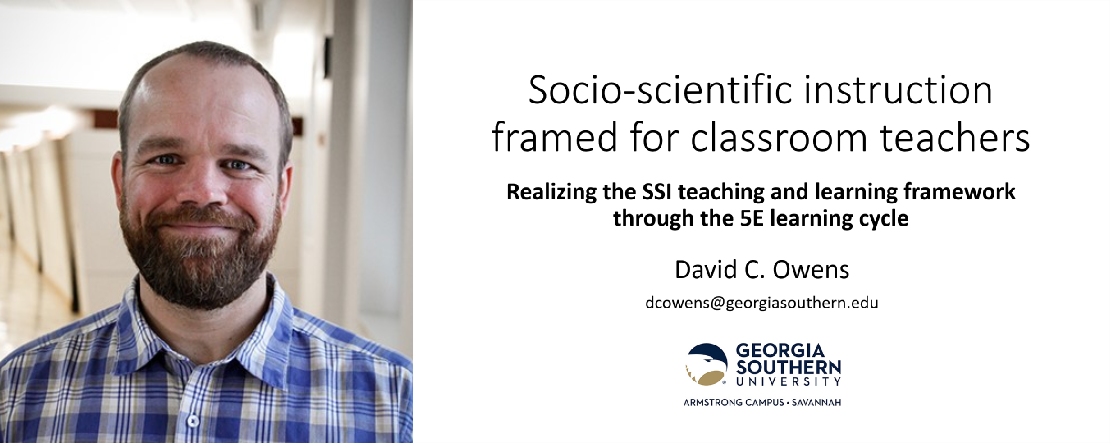
美国佐治亚南方大学助理教授David Owens以新冠病毒为案例,阐述了借助5E教学模型开展社会性科学议题教学的方案。该案例首先用视频激发学生情感、激活经验,使学生参与其中,探索议题的相关信息和概念,在不同的情境中阐述不同视角的理解,在推理、论证和建模等实践中解释现象和问题,最终在活动中评价学生的学习结果。
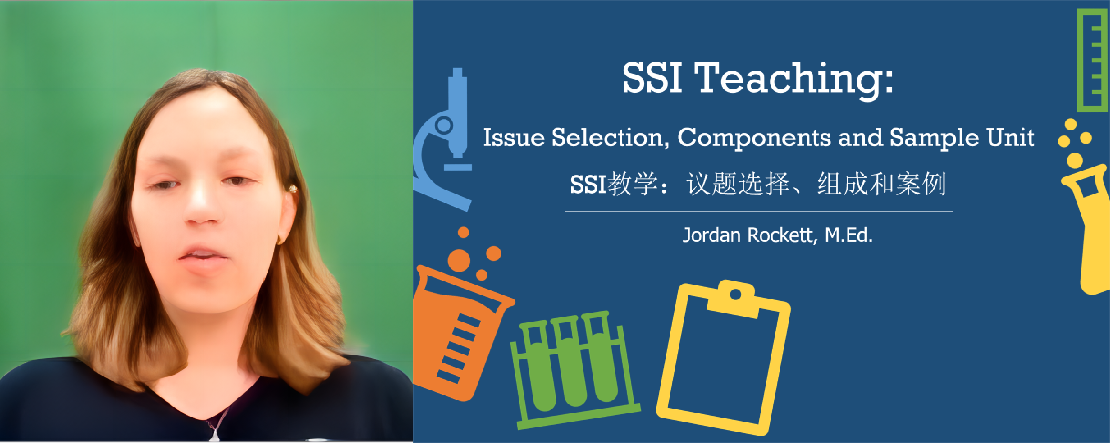
美国巴特尔高级中学科学教师Jordan Rockett详细介绍了聚焦电子烟的社会性科学议题学习案例。该案例让学生参与基于模型的推理,利用星形图来探索议题的复杂性,使用拼图工具来调查多个视角,借助因果图来发展观点立场,在建模、制作产品等活动中评估学生的表现。
四、国内专家主旨报告
本次会议邀请了来自北京师范大学、首都师范大学、台湾师范大学等多所高校的专家学者以及一线教育专家,共同探索本土社会性科学议题学习的理论和实践方略。
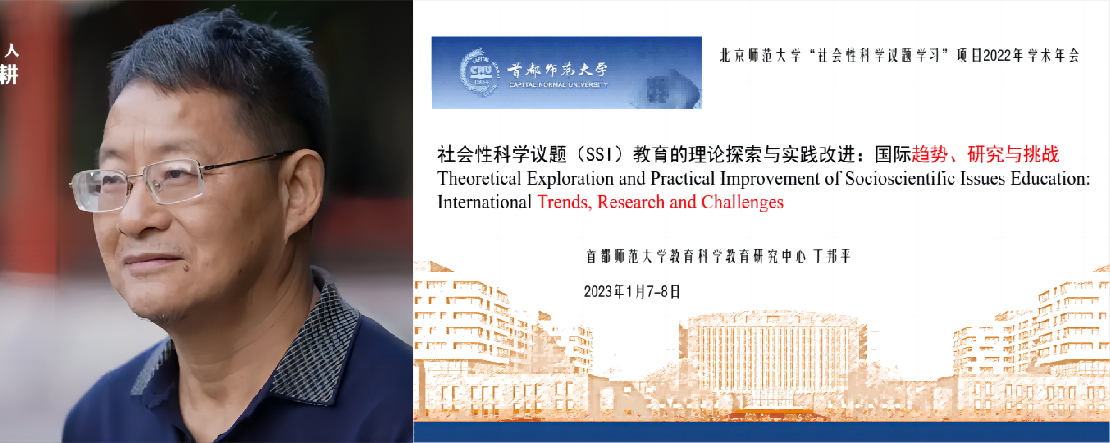
首都师范大学科学教育研究中心主任丁邦平教授系统全面地考察了社会性科学议题教育领域,指出国际科学教育将社会性科学议题教学作为培育公民素养、建立学生道德观念以及做出科学决策的有效措施,倡议国内教育工作者开展实证研究、更新教育观念并积极探索。丁老师高度赞誉项目对提升我国中小学生科学素养的价值,呼吁教育工作者更新科学观与科学教育观、重视基于议题的科学实践的学习与研究。
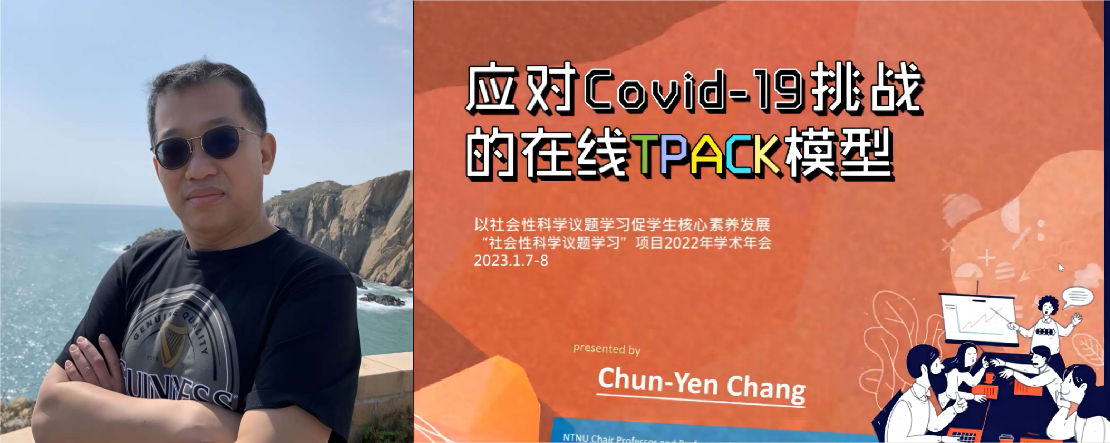
台湾师范大学讲席教授、科学教育中心主任、科学教育研究院及地球科学系教授张俊彦介绍了他的团队开发的支持职前教师专业成长的模式。该模式促进自主合作学习、信息资源共享和创造性交流对话,将探究精神融入师生互动过程,支持教师开展线上的社会性科学议题学习活动,以应对新冠疫情带来的挑战。
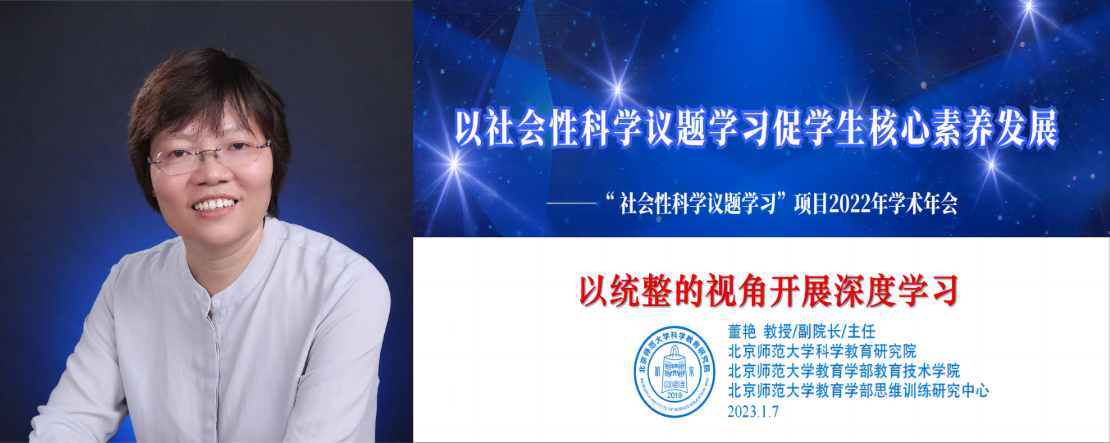
北京师范大学科学教育研究院副院长董艳教授聚焦科学教育的统整性,认为社会性科学议题与当今科学教育追求的综合学习和素养导向相契合,有助于培养学生批判辩证思维,弥补STEM教育的不足,倡导议题与高新技术融合以促进基于问题的学习。
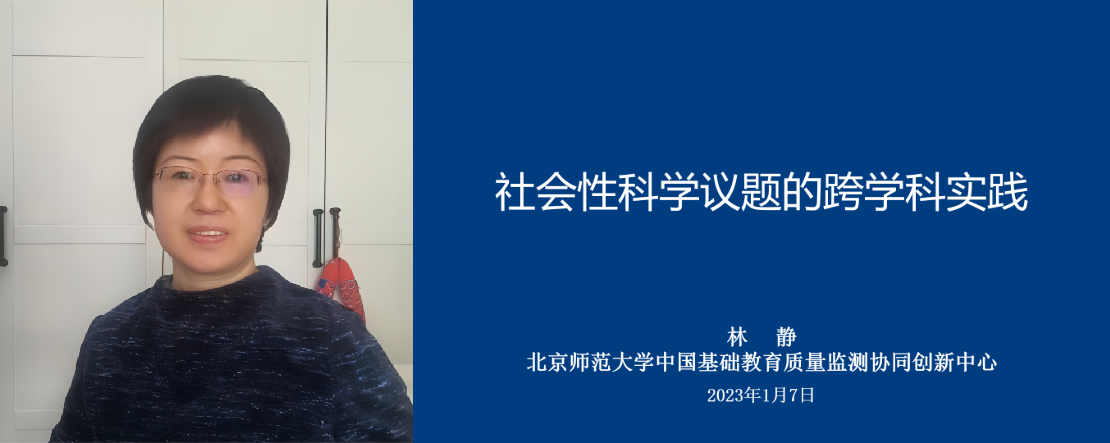
北京师范大学中国基础教育质量监测协同创新中心科学提升部主任、社会性科学议题项目负责人林静副教授基于项目近3年的实施进展,倡议开展社会性科学议题学习的跨学科实践研究,提议大家采用基于本土、联系课标、符合逻辑、适用学生的跨学科融合学习设计框架,并以雾霾的教学为例,阐述着眼于社会性科学论证、社会性科学推理等跨学科实践的学习活动,促学生科学思维与探究实践的发展。
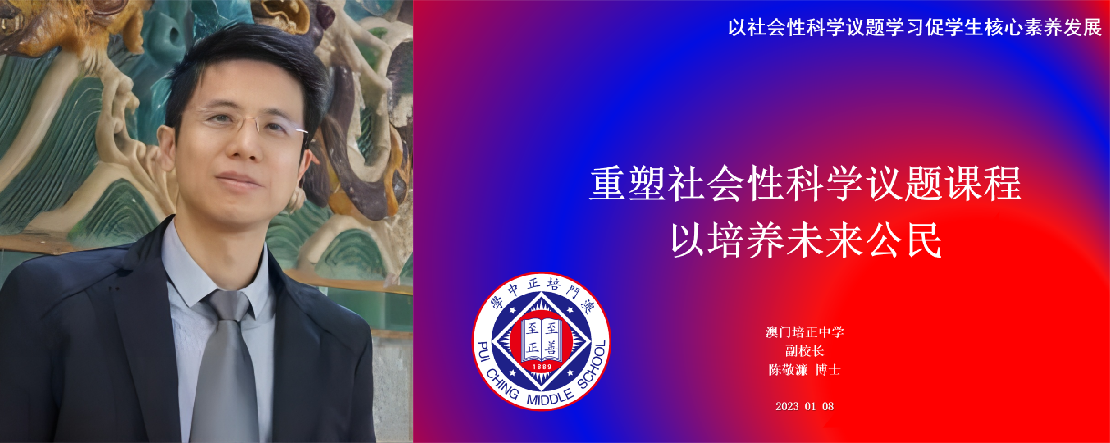
澳门培正中学副校长陈敬濂博士讲述了本校为释放学生潜能而开展的跨学科整合经验,让学生在做科学、用科学的过程中提升科学素养和学习态度,同时以评价改革助推公民教育,成功建构了以情境化、整合运用能力和跨学科为重点的社会性科学议题学习评估系统。
五、项目学科指导专家团队报告
五位项目学科指导专家出席本次会议并作主旨报告,与大家分享了社会性科学议题学习项目推进中的本土理论观点与实践经验。
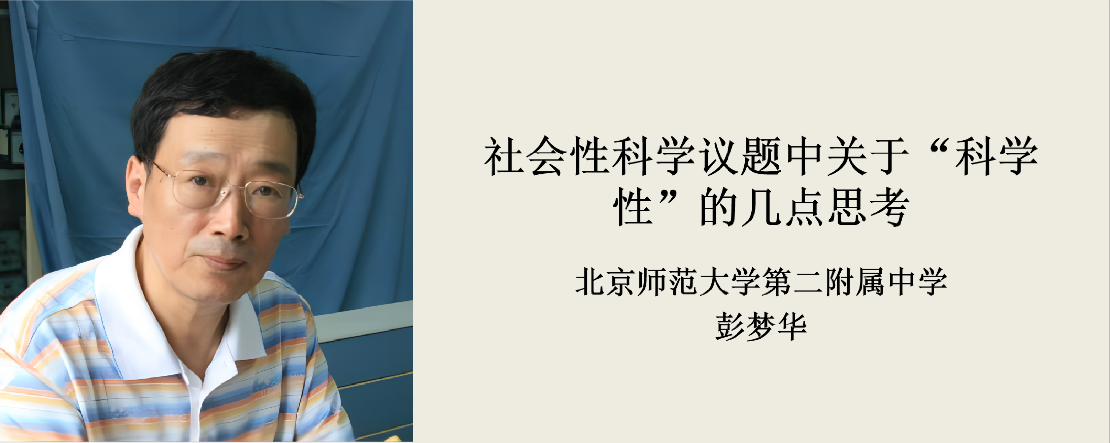
北京师范大学第二附属中学特级教师、社会性科学议题学习项目学科指导专家组组长彭梦华聚焦社会性科学议题的科学性,提出五点建议:教师要深入理解议题的科学问题及跨学科知识;议题的选择和难度联系课程标准和学生水平,可适当拓展;议题的选择贴近学生生活;议题研究注重科学范式的规范性,指向科学思维;学生综合运用自然和社会科学知识能力解决问题。
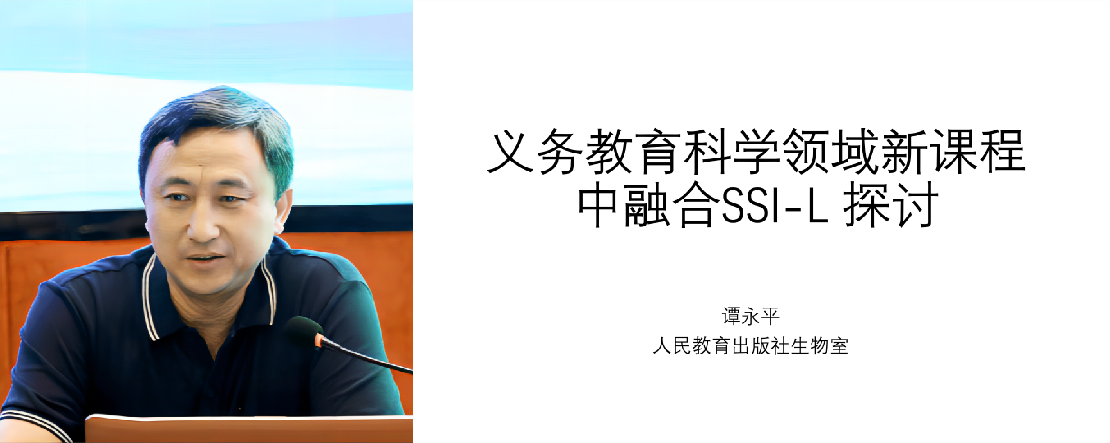
人民教育出版社生物室主任、项目高中学段负责人谭永平从我国学科课程标准出发,阐述了社会性科学议题学习的价值:一是其社会性、科学性和实践性高度契合跨学科实践的育人指向;二是融合了诸多科学课程中的核心概念,促进学生对大概念的理解;三是融合了自然科学与人文科学,有助于培养学生的正确观念。
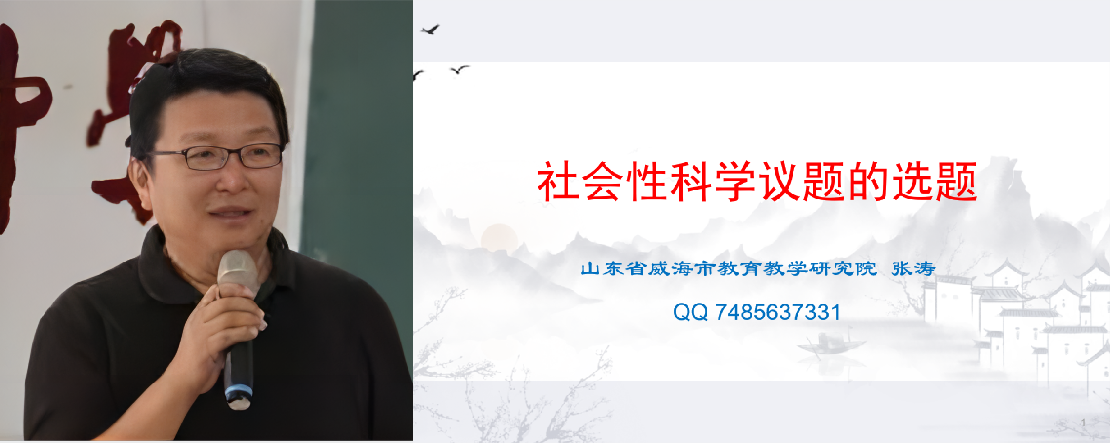
山东省威海市教育教学研究院初中室主任、特级教师,项目初中学段负责人张涛聚焦各校在社会性科学议题学习实践中遇到的重点和难点——议题的选择,建议从科学课程标准、社会生活新闻以及他人研究中获取灵感,开展文献调研,评价选题是否在科学性上符合学生知识水平、在社会性上突出争议点、在个体主观行为上体现开放性以及涉及不同群体的伦理道德标准。
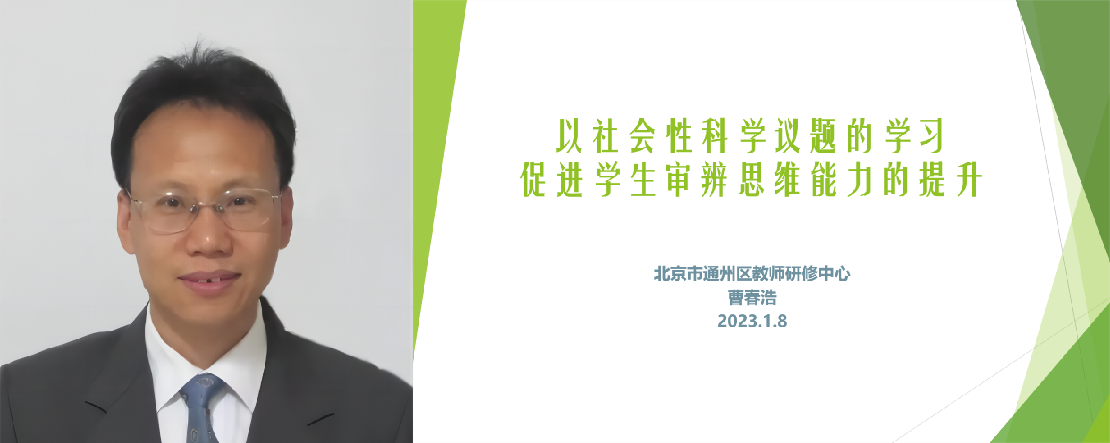
北京市通州区教师研修中心特级教师、项目小学学段负责人曹春浩解析了审辨思维的内涵,以“校门口小食品能不能吃”议题为例,探讨了在社会性科学议题学习中让学生参与分解问题、检验证据、开展论证等的教学,以促进学生审辨思维能力的提升。
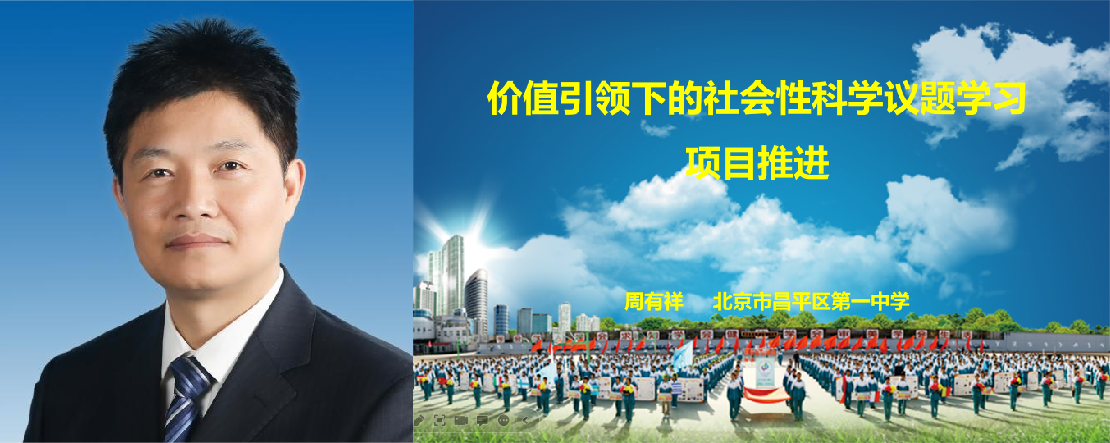
北京市昌平区第一中学特级教师、项目团队学科指导专家组成员周有祥分享了本校在推进项目过程中的教学和管理经验。学校组建了跨学科教师和多级组织架构,结合专家意见、学生问卷、文献调研、学情分析等方式形成教学设计,采用图尔敏论证模型组织课堂教学,注重学生评价和教师评价。
六、项目合作校案例展示与专家点评
来自国内不同省市的6所项目合作校教师代表在本次会议上报告了社会性科学议题学习的案例,3位特邀专家给予精彩点评。
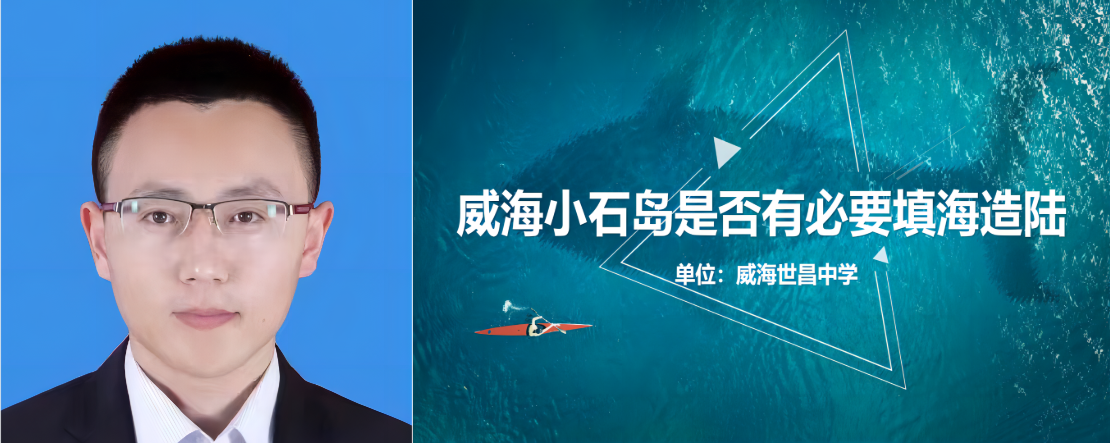
山东省威海世昌中学教师崔文浩讲解了该校《威海小石岛是否有必要填海造陆》案例。议题的开展采用双师制和多学科教师辅助的模式,组织了实验探究、实地考察、调查走访等活动,开展了建构地形环境模型、分析填海造陆成本收益等实践。
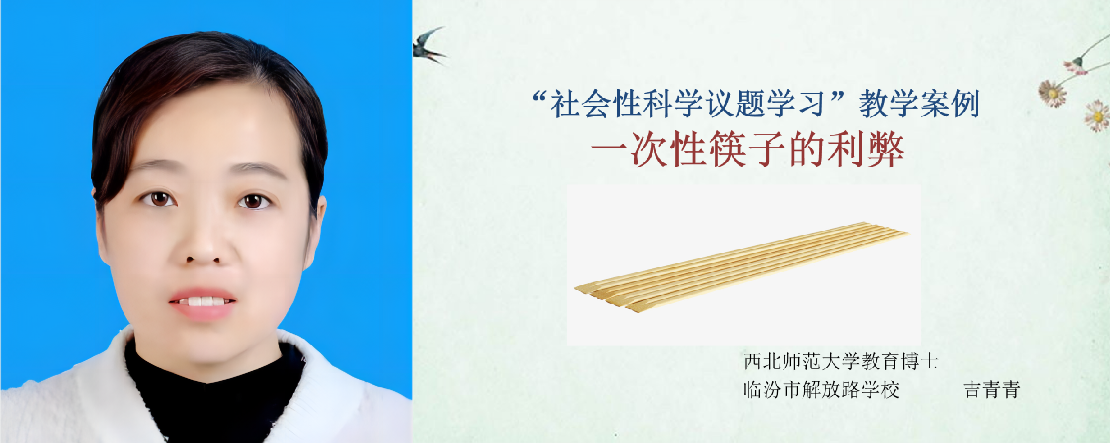
山西省临汾市解放路学校教师吉青青报道了该校的案例《一次性筷子的利弊》。聚焦“一次性筷子该不该使用”这一问题,让学生从经济、生物、环境、政策等多角度进行探究,开展了“一次性筷子是利大于弊还是弊大于利”这一辩论赛。
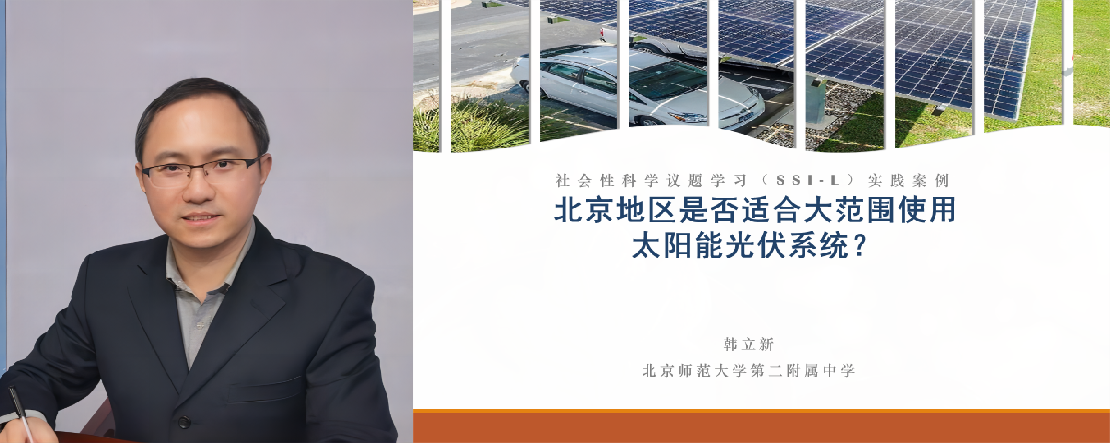
北京师范大学第二附属中学教师韩立新报告了该校的案例《北京地区是否适合大范围使用太阳能光伏系统》议题的教学,以设计校园中的太阳能路灯系统为学习目标,将供电、储电和控制三个任务拆解为七项学习活动,培养学生动手实践与辩证思考的能力。
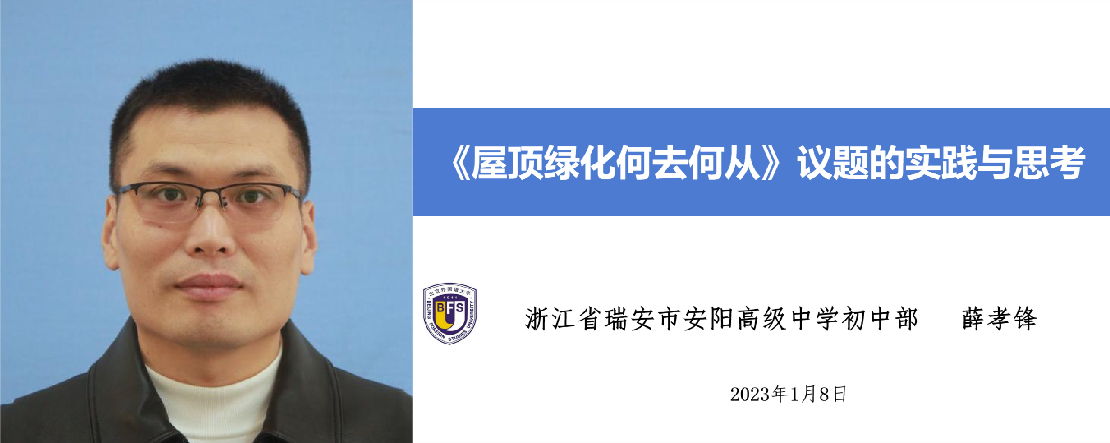
浙江省瑞安市安阳高级中学初中部教师薛孝锋讲解了该校的案例《屋顶绿化何去何从》。围绕“是否支持在瑞安推广屋顶绿化”,引导学生从科学、政策、审美、安全、经济等方面进行探讨,设计了基于建模的论辩、撰写实践调查报告与可行性分析报告等表现性评价任务。
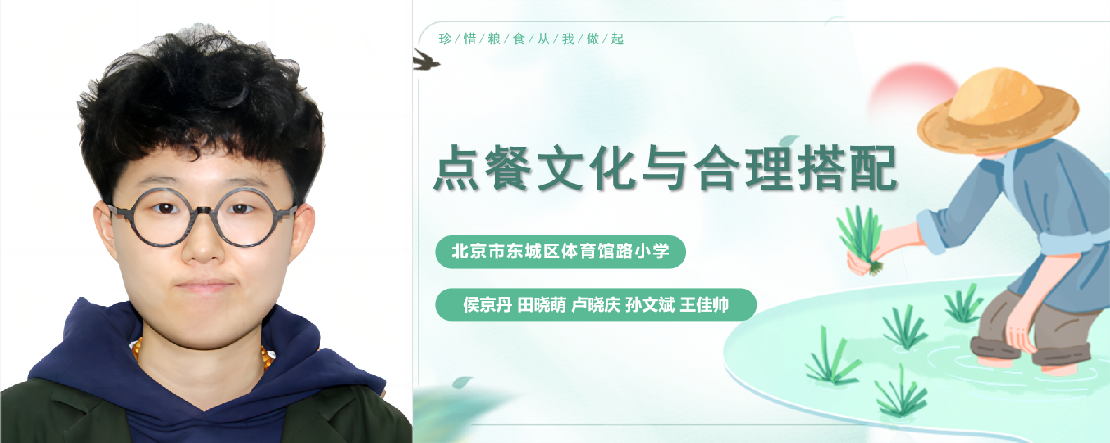
北京市东城区体育馆路小学教师卢晓庆报告了该校的案例《点餐文化与合理搭配》。聚焦面子排场与合理搭配等方面的争议点,引导学生对粮食浪费、营养均衡、餐饮利润、饮食文化和营养元素等不同维度展开探讨并实施调查分析。
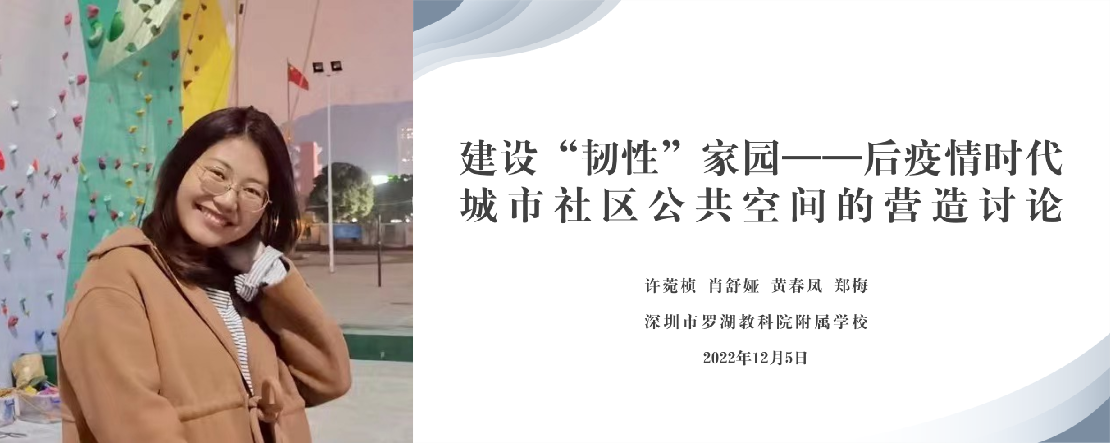
深圳市罗湖教科院附属学校教师许菀桢报道了该校的案例《建设“韧性”家园——后疫情时代城市社区公共空间的营造讨论》。从科学、心理健康、经济、政策管理与道德等方面架构了跨学科教学框架,设计了绘制并提交“城中村”公共空间改造建议书这一终极任务。
三位特邀专家肯定了各案例中的闪光点,包括选题的真实性和跨学科特性、与学生生活和社会现实的密切联系、学习活动的研究属性等。北京师范大学滕珺教授建议将议题置于全球背景,助力学生拓展全球视野,并在星形图中加入艺术维度,在研究对象和研究过程中渗透“美”。华东师范大学肖思汉副教授倡导项目成员有意识地收集和分析数据,以循证的方式讲述课程故事,分辨议题科学内在和超越科学本身的不确定性,强调非科学因素引发的不确定性,关注科学的人文性。北京师范大学实验小学教科室主任、特级教师陈延军提出在社会性科学议题学习中,教师是激发学生思维发展的引领者、设计者和参与者,学生在有意义的、参与式的学习活动中成长,教学促进学生实践和探究,以全面的目标、合理的任务重塑课堂,建议加强活动的开放性、设计方便操作的评价。
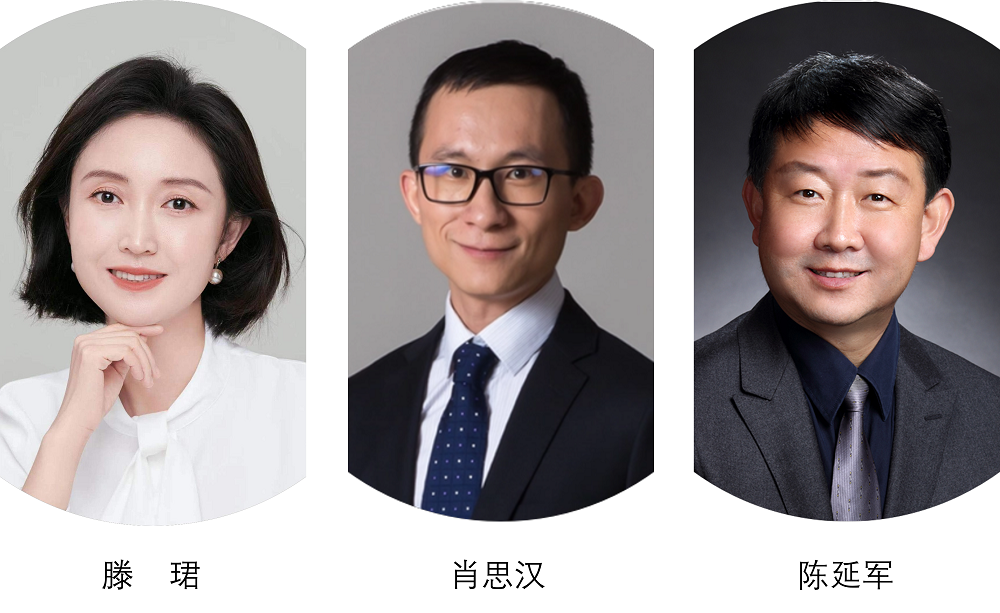
在会议闭幕式上,北京师范大学教育基金会秘书长李胜兰为荣获2022年“社会性科学议题学习”优秀案例的9篇作品颁奖并致辞,指出项目团队在两年多里开展的专题研讨、学术讲座和项目交流会等线上线下活动为64所合作校搭建了高质量的对话和科研平台,肯定了项目成员取得的成果,包括多个专题二十几篇期刊文章和《社会性科学议题学习——从理念到实践》一书,合作校获批了二十多项科研项目及各类师生奖项。李秘书长谈及将教育理念落实于实践的不易,并祝愿项目在2023年取得进一步的成就。
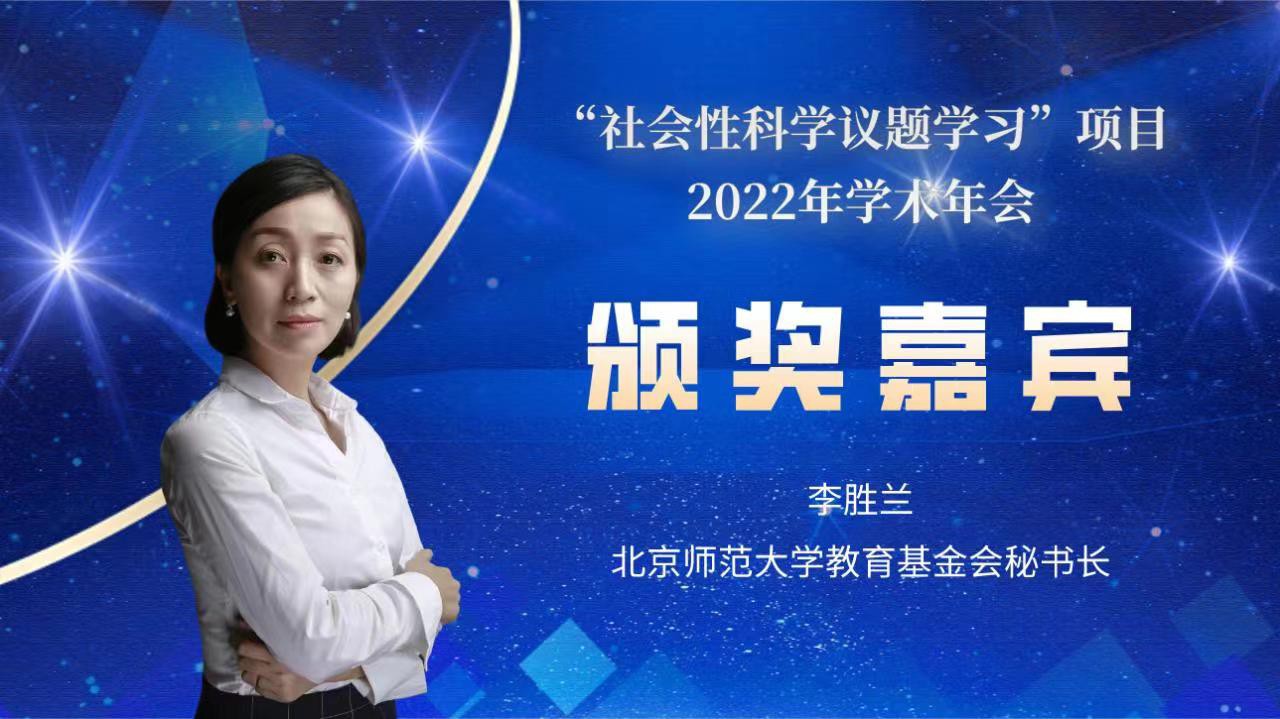
最后,社会性科学议题学习项目负责人林静副教授作了会议总结,首先致谢支持项目研究开展的北京师范大学各机构单位、境内外咨询指导专家、项目学科指导专家团队和各合作校;进而回顾与概括本届年会盛况,指出境内外专家学者从理论研究、校本应用、课堂实施等多层面多角度地围绕会议主题开展的有益的学术争鸣与交流,项目学科指导专家和合作校报告的社会性科学议题教与学的本土经验,都将滋养项目研究的后继行程;最后希望合作校明确研究目标,建立体制,更新观念,慎重实施,以教师专业发展为重,分阶段扎实探索以社会性科学议题学习促学生核心素养发展的有效之路。
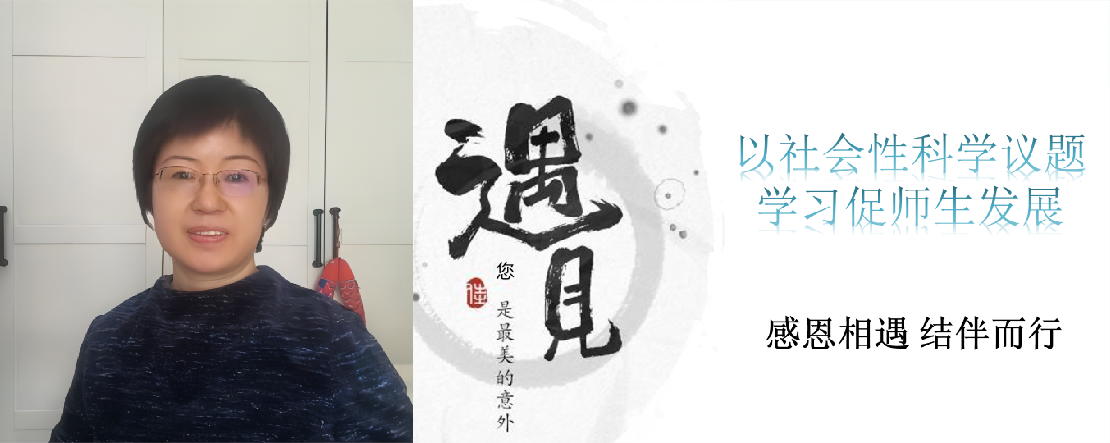
祝项目合作校、项目团队在新的一年里取得丰富的研究成果!
通讯报道:北京师范大学新闻网中国基础教育质量监测协同创新中心官网
To implement the educational goal of fostering virtue through education and help primary and secondary schools develop students’ core literacy, the SSI-L Project Team at Beijing Normal University (BNU) held the 2022 Academic Annual Conference on Promoting the Development of Students’ Core Literacy Through Socio-Scientific Issues Learning online from January 7 to 8, 2023. The conference was hosted by the Collaborative Innovation Center of Assessment for Basic Education Quality at BNU, the Institute for Science Education Research at BNU, the Research Center for International and Comparative Education at BNU, and sponsored by the Basic Education Development Management Department at BNU, the School of Continuing Education and Teacher Training at BNU, and iFLYTEK CO.LTD. The conference lasted for four half days, and was broadcast live by Jingshi Jijiao and Qiangshi Online WeChat channels. Thousands of people participated in the conference online every half day, with tens of thousands of hits and widespread attention received.
This conference focused on 4 themes: “SSI learning and core literacy development”, “SSI learning theory and model”, “SSI learning design and cases”, and “SSI learning classroom teaching strategies”. Around these themes, the conference set up 1 session for academicians of the Chinese Academy of Sciences, 7 sessions for international experts, 10 for domestic experts, as well as presentations from 6 project partner schools and comments by 3 specially invited experts. The conference emphatically discussed the theory and development model of evidence-driven and literacy-oriented SSI teaching and learning, demonstrated and exchanged the design and practical application research of SSI learning at home and abroad, and established platforms and professional teams for cooperation and exchanges in SSI learning.
1. Conference address
Professor Lu Shanzhen, former president of Beijing Normal University and chairman of the Alliance for Improving Scientific Literacy, pointed out the value of socio-scientific issues lies in cultivating future citizens with scientific literacy. He hoped that all project members would explore effective ways to promote the development of students’ core literacy using issues as carriers.
Professor Gu Mingyuan, a senior professor at Beijing Normal University, talked about the infancy stage of SSI education — the STS course. He affirmed that SSI learning projects contribute to education that integrates science, technology, and humanities. He also encouraged participants to use socio-scientific issues as a carrier to cultivate new generations with noble minds and a sense of social responsibilities, so that they can cope with the epochal challenges led by technological, economic and social changes, and undertake joint responsibilities for promoting sustainable development.
Professor Chen Guangju, former vice president of Beijing Normal University and vice president of the Alumni Association, pointed out the significance of SSI-L projects in school curriculum reform to promote the overall development of primary and middle school students. He suggested that those projects focus on three aspects: elevating students’ high-order thinking ability, improving teachers’ education skills and ability and creating high-quality schools with their characteristics, and promoting basic education reform and quality improvement.
Professor Zheng Yonghe, dean of the Institute for Science Education Research at BNU and vice chairman of the Alliance for Improving Scientific Literacy, emphasized the role of educating people in science education under the strategy for invigorating China through science and education, in relation to the new era background of technological innovation. He suggested that during the project, efforts should be made to build a number of high-quality curriculum resources, innovate the classroom teaching mode, carry out interdisciplinary teaching in real problem contexts, and promote student development by promoting teacher development.
Professor Wang Benzhong, dean of Beijing Shengtao Educational Development and Innovation Research Institute and member of the Project Expert Advisory Committee, pointed out that SSI learning provides an educational environment that educates people with culture and morality. He emphasized that the national curriculum standards should be firmly grasped, organically integrated, and further expanded in the development of SSI-L projects. Attention should be paid to students’ real experience, make them the practitioners and main force of problem discovery and problem solving, and improve their moral characters and cultural literacy with the balance of multifold advantages and disadvantages.
Dr. Lu Yunquan, the principal of Beijing 101 Middle School Education Group and the chief principal of the SSI-L Project partner schools, took his school’s research projects as examples, such as “Recycling of Scratch Paper on Campus”, “Shuirun 101” and “COVID-19 Pandemic Response Plan”. He affirmed the contribution of SSI-L project to promoting the interaction and integration of disciplines and cultivating students’ sense of responsibility. He called on more primary and secondary schools to undertake the social responsibility of improving students’ scientific literacy and training high-quality talents, and to explore best school-based implementation models for science education.
Troy Sadler, an outstanding professor at the University of North Carolina at Chapel Hill and head of SSI-L Project Overseas Cooperation, took carbon cycle and climate change as examples to clarify the science education concept of constructing learning experiences around phenomena. He emphasized the reform trend of creating various SSI learning contexts, to support students to develop their agencies through analyzing real-life problems and making decisions, and to become rational citizens who are engaged with social changes.
Zhu Shengying, dean of the School of Continuing Education and Teacher Training at BNU, expressed the school’s continuous attention to science education and the development of SSI learning projects. He affirmed the value of SSI-L projects in improving teachers’ ability and quality. He said series of science education training activities would be planned together with the project teams for primary and middle school teachers, to promote the high-quality development of science education.
2. Conference presentation by Wu Xiangping
Wu Xiangping, an academician of the Chinese Academy of Sciences and director of the Institute of Frontier Science of Astronomy and Astrophysics at BNU, talked about the two goals of China’s socialist construction. He emphasized the importance of improving the scientific literacy of primary and middle school students and developing science education from the perspective of talent training. With examples such as the limit of human division of matter, he advised vividly in simple terms on the understanding of the nature of science, such as the uncertainty of science, the boundaries existed in science, etc. Wu pointed out that science education should train young people to think about issues with scientist thinking, undertake the responsibility of knowledge dissemination, knowledge integration, and developing and keeping interest in science. Those projects such as the Talent Program for Middle School Students aim at cultivating scientists, and enabling a group of young people to have the potential of scientists. He also took the dragon, a traditional cultural symbol, and rocket launch as examples to clarify concepts that should be emphasized in science education, such as the harmonious development of natural sciences and humanities, and that success is derived from failure. His presentation enlightened educators’ educational beliefs and objectives.
3. Keynote speeches by international experts
Advice from others may help one to overcome his shortcomings. This conference hence invited university scholars and front-line educators who have made great achievements in the field of socio-scientific education from the United States, the United Kingdom, Israel, Cyprus and other countries, to discuss the direction of quality education reform and the ways to improve socio-scientific education.
Dana Zeidler, a distinguished professor at the University of South Florida, is the founder and leading scholar in the field of socio-scientific issues education. Based on his research and practice over the past 40 years, he concisely illustrated the goals and values of issue-based teaching and learning, that is, enabling students to understand the nature of science, developing ethics and reasoning skills, and experiencing the pleasure of accidental discovery. He took issues such as drug selection and animal cloning as examples, and explained the teaching sequence, activity design and implementation plan of SSI learning. “When it comes to observation, opportunity favors only the prepared mind.” He believed that all we have to do is to prepare students to constantly think and wonder about the world around them.
Troy Sadler, a distinguished professor at the University of North Carolina at Chapel Hill, shared teaching cases such as climate change and habitat loss. He analyzed the characteristics of high-quality SSI learning. Those include: containing important real issues in the real world, enabling students to carry out meaningful practices around the issue, prompting students to connect global issues with local contexts, enhancing students’ identity and agency, and using the classroom as a community space for discourse interaction. He provided tools such as teaching sequence models and key feature maps that teachers can use. Based on his empirical research results, he suggested that teachers openly accept interdisciplinary ideas when carrying out issue-based teaching, support students to analyze issues from multiple perspectives, value students’ ideas, and encourage students to be skeptical.
Professor Michael Reiss, from the Research Institute of Education, University College London, UK, explained the three visions of science education through three issues — test-tube babies, metal mining, and climate change. Vision I starts from science and emphasizes scientific knowledge and methods. Vision II emphasizes citizen science and considers the use of science by all. Vision III is the humanized science education that focuses on social and political actions. The three visions are mutually conducive, indispensable for SSI education to comprehensively improve students’ scientific literacy.
David Fortus, professor at the Weizmann Institute of Science in Israel, focused on the practical problems in science education. First, students often fail to see the relevance of science to their life. Second, students are not ready to use scientific thinking to participate in global issues. Therefore he suggested to reconstruct science education standards around grand challenges, pay attention to non-cognitive factors such as emotional attitudes, and cultivate future scientists and future citizens with scientific literacy.
Maria Evagorou, associate professor at the University of Nicosia in Cyprus, argued that SSI learning makes science relevant to teachers and students. In the case of the mosquito disaster, the students went through the process of discussing different solutions, fieldwork at the Salt Lake, constructing and using models, evaluating and questioning each other, and making solutions. In the case of honeybee population decline, pre-service teachers experienced the process of tasting honey and pollen identification, building, redesigning, and discussing the hive model, using and demonstrating the model in different scenarios, reflecting on practice, etc. Both programs have shown the relevance of science to learners themselves, to society, to career development, and to the future environment.
David Owens, assistant professor at Georgia Southern University in the United States, took the COVID-19 pandemic as a case study, and explained how to implement SSI teaching plan by using the 5E teaching model. He first used videos to stimulate students’ emotions and activate their experience, enabling students fully engaged. Students have explored relevant information and concepts of the issue, elaborated their understanding from different perspectives in different contexts, and explained phenomena and problems in the practice of reasoning, argumentation and modelling. Eventually teachers evaluated students’ learning outcomes in these activities.
Jordan Rockett, a science teacher at Battelle High School in the United States, introduced in detail the SSI learning case that focused on vaping. In the case, students were asked to participate in model-based reasoning, use star map to explore the complexity of the issue, adopt jigsaw tools to investigate multiple perspectives, and make use of cause-and-effect diagrams to develop positions. Students’ abilities were accessed in modeling, making products, and other activities.
4. Keynote speeches by domestic experts
The conference invited experts and scholars from Beijing Normal University, Capital Normal University, Taiwan Normal University and other universities, as well as the front-line education experts to jointly explore the theory and practical strategies of domestic SSI learning.
Professor Ding Bangping, director of the Research Center of Science Education of Capital Normal University, systematically investigated the field of SSI education. He pointed out that international science education work takes SSI teaching as an effective measure to cultivate civic literacy, build students’ moral concepts, and make scientific decisions. He recommended that domestic educators carry out empirical research, renew educational concepts, and actively probe into SSI teaching. Ding thought highly of the value of SSI-L projects in improving the scientific literacy of primary and secondary school students in China. He called on educators to update their views on science and science education, and to attach importance to the study and research of SSI based scientific practice.
Chun-Yen Chang, chair professor at Taiwan Normal University, director of the Science Education Center, and professor of the Institute for Science Education Research and the Department of Earth Sciences, introduced the model developed by his team to support the professional development of pre-service teachers. This model promotes independent cooperative learning, sharing of information resources, and creative communication and dialogue. It integrates the spirit of inquiry into the teacher-student interaction process, and supports teachers to carry out online SSI learning in coping with the challenges brought about by the COVID-19 pandemic.
Professor Dong Yan, deputy dean of the Institute for Science Education Research at BNU, focused on the integrity of science education. She believed that socio-scientific issues are in line with comprehensive learning and literacy orientation pursued by current science education, which is conducive to developing students’ critical and dialectical thinking and making up for the shortcomings of STEM education. She proposed to integrate socio-scientific issues with high technologies to promote problem-based learning.
Based on the implementation progress of the SSI-L Project in the past 3 years, Lin Jing, associate professor, director of the Science Development Department of the Collaborative Innovation Center of Assessment for Basic Education Quality at BNU and head of the SSI-L Project Team, proposed to carry out interdisciplinary practical research on SSI learning. She suggested that everyone adopt a design framework of interdisciplinary integration learning that’s based on local context, associated with curriculum standard, logical, and applicable to students. She took the teaching of smog as an example, and explained interdisciplinary practical activities that focus on socio-scientific argumentation and socio-scientific reasoning, hence promoting the development of students’ scientific thinking and inquiry practice.
Dr. Chen Jinglian, vice principal of Pui Ching Middle School in Macau, talked about the interdisciplinary integration experience of his school to unleash students’ potential. The school allows students to improve their scientific literacy and learning attitude in the process of doing science and using science. Meanwhile it promotes civic education through evaluation reform. The school has successfully constructed an SSI learning assessment system focusing on contextualization, integrated application ability and interdiscipline.
5. Keynote speeches of the Disciplinary Guidance Expert Team
Five disciplinary guidance experts attended the meeting and delivered keynote speeches. They shared the local theoretical arguments and practical experience in the process of SSI-L projects.
Peng Menghua, a Special-Rank Teacher of the Second Affiliated Middle School of Beijing Normal University and head of the Disciplinary Guidance Expert Team of the SSI-L Project, focused on the scientific nature of socio-scientific issues and put forward five suggestions. Those include: teachers should have a deep understanding of the scientific problems and interdisciplinary knowledge of the issues; issue selection and level of difficulty need to associate with curriculum standards and students’ level, but can be appropriately expanded; issue selection should be close to students’ life; issue research should focus on the normative nature of scientific paradigms and point to scientific thinking; students should comprehensively use their knowledge in natural science and socio-scientific knowledge to solve problems.
Tan Yongping, director of the Biology Office of the People’s Education Press and head of the senior high school team of the SSI-L Project, started from the national curriculum standards and elaborated the value of SSI learning: firstly, its social, scientific and practical aspects are highly compatible with the educational orientation of interdisciplinary practices; secondly, it integrates the core concepts in many science courses to help with students’ understanding of grand concepts; thirdly, it integrates natural science and humanities, which helps to develop students’ correct concepts.
Zhang Tao, director of the junior high school office of the Weihai Education and Teaching Research Institute in Shandong Province, a special-rank teacher, and head of the junior high school team of the SSI-L Project, focused on the key points and difficulties encountered in the SSI learning practices. On issue selection, he recommended to get inspiration from science curriculum standards, social daily news and other people’s research, and then to take literature research. It is also recommended to evaluate whether the selected issue meets the students’ knowledge level in terms of scientificity, whether it highlights controversy in terms of social features, whether it reflects openness in terms of individual subjective behaviors, and whether it involves the ethical moral standards of different groups.
Cao Chunhao, a Special-Rank Teacher of Beijing Tongzhou District Teacher Research and Training Center, and head of the primary school team of the SSI-L Project, analyzed the connotations of critical thinking. He took the issue of “Is it healthy to eat snacks at the school gate?”, and discussed how to allow student to participate in issue decomposition, evidence check, and developing arguments in SSI learning, so as to facilitate the improvement of students’ critical thinking ability.
Zhou Youxiang, a Special-Rank Teacher of the No. 1 Middle School in Changping District of Beijing, and a member the Disciplinary Guidance Expert Team of the SSI-L Project, shared his school’s teaching and management experience in the process of project implementation. The school has established a team with interdisciplinary teachers and a multi-level organizational structure. Teaching design incorporates expert opinions, student questionnaires, literature research, and learning situation analysis. It uses Toulmin’s argument model to organize classroom teaching, and focuses on student evaluation and teacher evaluation.
6. Presentations of partner school project and expert comments
Faculty representatives from 6 SSI-L project partner schools from different provinces and cities in China presented their SSI learning cases on this conference, and 3 specially invited experts offered comments.
Cui Wenhao, a teacher from Weihai Shichang Middle School in Shandong Province, explained his school’s project — “Is it necessary to reclaim land from the sea on Xiaoshi Island in Weihai?”. The development of the project adopted the mode of dual-teacher system and multi-disciplinary teacher assistance. The project also organized activities such as experimental inquiry, fieldwork, survey and interviews. Other implemented practices included constructing terrain environment models and analyzing the costs and benefits of land reclamation.
Ji Qingqing, a teacher from Jiefang Road School in Linfen City, Shanxi Province, presented her school’s project — “the pros and cons of disposable chopsticks”. She focused on the issue of “should disposable chopsticks be used?”, and asked students to explore from economic, biological, environmental, policy and other perspectives. A debate contest was organized on “Do disposable chopsticks do more good than harm or do more harm than good?”.
Han Lixin, a teacher from the Second Affiliated Middle School of Beijing Normal University, presented his school’s SSI teaching on “whether Beijing is suitable for large-scale use of solar photovoltaic systems”. The project took the design of the solar-powered street lighting system on campus as the learning goal. Three tasks of power supply, power storage and control were disassembled into seven learning activities, so as to cultivate students’ ability of hands-on practice and dialectical thinking.
Xue Xiaofeng, a teacher from the Junior High School of Anyang Senior Middle School in Ruian City, Zhejiang Province, explained his school’s project — “Where does roof gardening go?”. The project focused on the issue of “whether to support the promotion of roof gardening in Ruian”. Students were guided to discuss from the aspects of science, policy, aesthetics, safety, economy, etc. Performance evaluation tasks were also designed, such as modelling based argumentation, writing practical investigation reports and feasibility analysis reports.
Lu Xiaoqing, a teacher from Tiyongguan Road Primary School, Dongcheng District, Beijing, presented her school’s project — “food ordering culture and balanced mix”. The project focused on controversies such as face-saving and balanced food mix. Students were guided to discuss food waste, nutritional balance, catering profits, food culture and nutritional elements from different dimensions, and conduct investigations and analysis.
Xu Wanzhen, a teacher from the Affiliated School of Shenzhen Luohu Academy of Sciences, presented her school’s project — “building a ‘resilient’ home — discussion on the creation of urban community public space in the post-epidemic era”. An interdisciplinary teaching framework was constructed from aspects of science, mental health, economics, policy management, and ethics. The ultimate task was designed as making and submitting proposals for public space renovation of “urban villages”.
The three specially invited experts affirmed the highlights of each project, including authenticity and interdisciplinary nature of the issues, close connection with student life and social reality, and the research attributes of learning activities. Professor Teng Jun, from Beijing Normal University, suggested putting the topic into a global context, to help students broaden their global horizons, and adding an artistic dimension to the star map, to allow “aesthetics” to infiltrate in the research objects and research process. Associate Professor Xiao Sihan, from East China Normal University, advocated that project members collect and analyze data consciously, tell the curriculum stories in an evidence-based manner, distinguish the uncertainties inherent in and beyond science, emphasize uncertainties caused by non-scientific factors, and pay attention to scientific humanity. Chen Yanjun, director of the Education and Research Office of Experimental Primary School of Beijing Normal University and a special-rank teacher, pointed out that in SSI learning, teachers are the leaders, designers and participants who stimulate the development of students’ thinking, and students grow in meaningful and participatory learning activities. Teaching motivates students’ practice and inquiry, and reshapes the classroom with comprehensive goals and reasonable tasks. It is suggested to strengthen the openness of activities and design evaluation methods that are easy to operate.
At the closing ceremony of the conference, Li Shenglan, secretary-general of the Beijing Normal University Education Foundation, presented awards to the 9 cases that won the 2022 “Socio-Scientific Issues Learning” Outstanding Project, and delivered her speech. She pointed out that the project team has carried out seminars, academic lectures, project exchange meetings, and other online and offline activities, and built a high-quality dialogue and research platform for 64 partner schools. She affirmed the achievements of project members, including more than 20 journal articles on various topics, book publication of Socio-Scientific Issues Learning — From Beliefs to Practices, more than 20 scientific research projects approved in partner schools, and various awards for teachers and students. Li talked about the difficulties of implementing educational concepts into practice, and wished the SSI-L project further success in 2023.
At last, Associate Professor Lin Jing, head of the SSI-L Project, made a summary of the conference. First of all, she expressed gratitude to the institutes of Beijing Normal University, domestic and foreign consultative and guidance experts, the disciplinary guidance expert team, and all partner schools, for supporting the project research. She then reviewed and summarized the grand feast of this year’s annual conference, pointing out the beneficial academic contention and exchanges done by domestic and foreign experts and scholars around the conference themes from multiple levels and perspectives, such as theoretical research, school-based practices, classroom implementation, etc.; and the local experience in SSI teaching and learning presented by the disciplinary guidance experts and partner schools; these would nourish the subsequent progress in project research. Finally, she hoped that partner schools would clarify their research goals, establish systems, renew concepts, implement them carefully, focus on the professional development of teachers, and explore stage by stage the effective ways to promote the development of students’ core literacy through SSI learning.
Wish the project partner schools and project teams fruitful research achivements in the new year!
